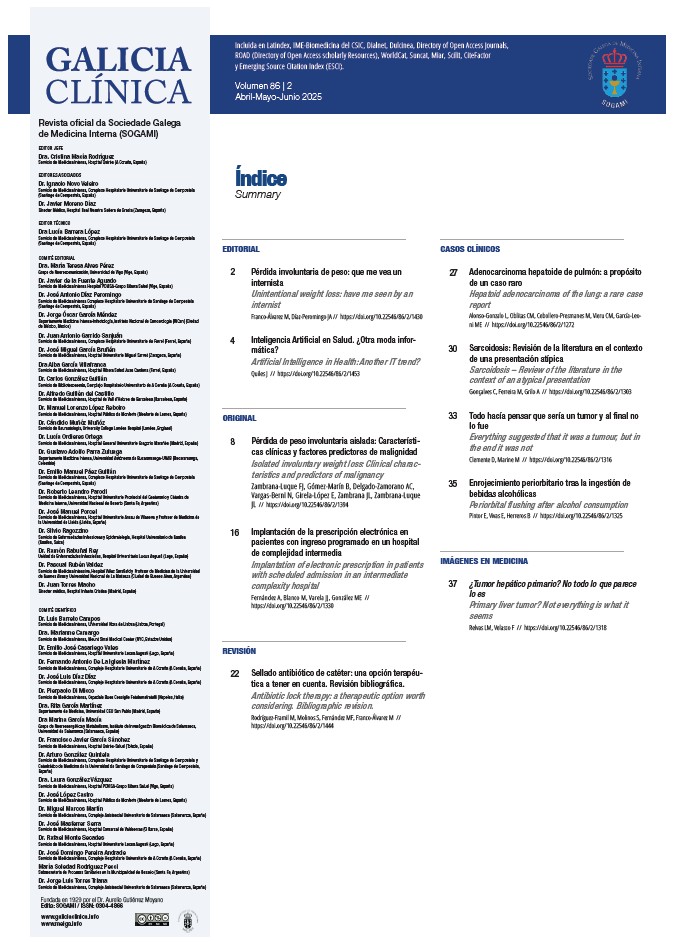Abstract
Introduction/objectives: Electronic prescription programs are a tool to reduce medication errors, to cut down cost associeted with therapy and improve the quality of prescription, which will result in improved care for hospitalized patient.
The assistencial transition to hospital admission often involves errors in medication reconciliation. Medication errors are one of the most significant causes of adverse events related to medication, even though a large proportion of them are preventable.
In this project we present the implantation of scheduled electronic prescribing during the year 2022-2023 in our hospital. The recipients are patients scheduled for admission for surgery, medical admission and/or diagnostic tests that require hospitalization.
Methods: We will describe the computer program we use for patient scheduling prior to admission. We will explain the coordination procedure carried out between the Pharmacy Service, IT Service, Anesthesia Service and the different Surgical and Clinical Services. We will detail the advantages of electronic prescription as compared to the traditional handwritten one in patients scheduled prior to admission and how we reconcile their treatment.
Results: In 2022, 611 patients were scheduled. The coverage rate of scheduled patients in 2023 was 11.5% given that 3.480 patients were scheduled out of the 30.210 hospitalized.
The Surgical Services are the ones that have programmed their admissions the most.
We find different types of errors: administrative, computer and clinical. In these cases, the pharmacist contacts colleagues to rectify the incident.
Conclusion:The implantation of this project has led to an improvement in medical prescription and the pharmaceutical validation process. By digitizing the treatments, errors in the transcription of the manuscripts were reduced. It is a sustainable strategy that eliminates the overproduction of paper prescription sheets.

This work is licensed under a Creative Commons Attribution-NonCommercial-NoDerivatives 4.0 International License.
Copyright (c) 2025 Galicia Clínica


